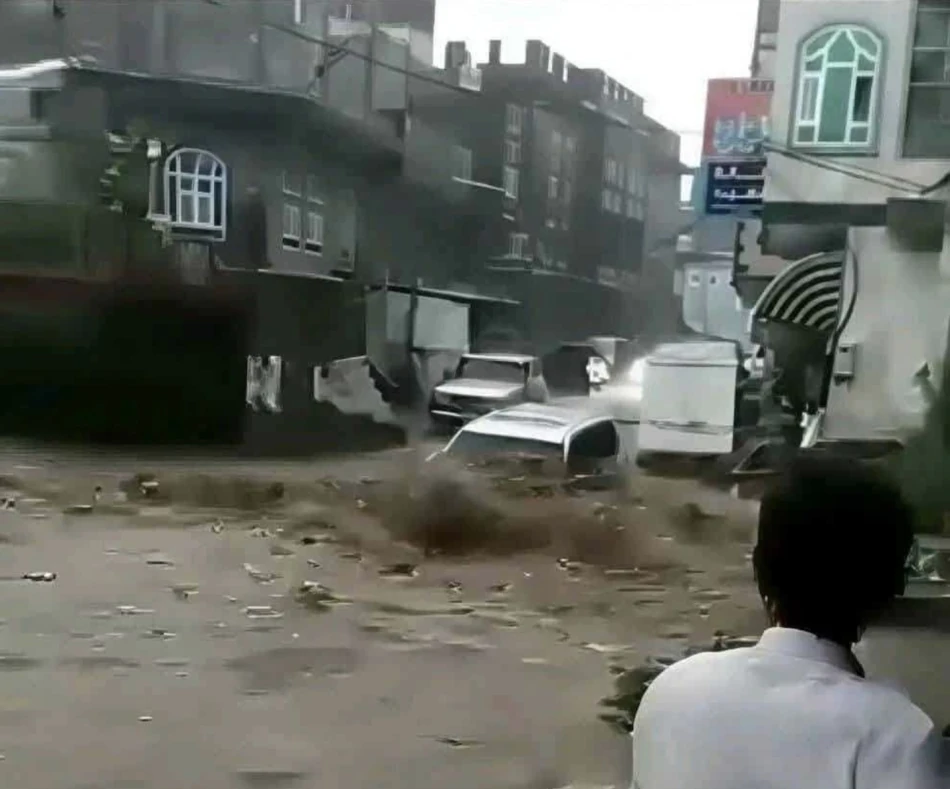
Tragic Flood Disaster: Four-Member Yemeni Family Swept Away by Deadly Floodwaters
Yemen's Deadly Floods Expose Infrastructure Crisis as Climate Disasters Mount
A tragic fourth flood-related incident in two weeks has claimed the lives of an entire family in Yemen's Ibb province, highlighting the country's vulnerability to extreme weather events amid ongoing conflict and infrastructure collapse. The latest victims include a 55-year-old father who had recently returned from years of residence in the United States, seeking to rebuild his life in his homeland.
Family Tragedy Underscores Broader Crisis
On Friday, heavy rains swept through Ibb city in central Yemen, creating deadly flash floods that engulfed a family's vehicle. The victims—a father, mother, and two children—were caught off guard while navigating rain-damaged roads. Local sources report that the father had only recently returned from the United States after years abroad, hoping to establish a permanent life back in Yemen.
This personal tragedy reflects a broader pattern of climate-related disasters that have intensified across the Arabian Peninsula, where aging infrastructure and limited emergency response capabilities leave populations particularly vulnerable to extreme weather events.
Mounting Death Toll Reveals Systemic Vulnerabilities
The Ibb province has experienced a devastating series of weather-related fatalities over the past fortnight. Beyond Friday's family tragedy, the death toll includes four people in the Hazm al-Udayn district, one woman in al-Radma district, and two additional victims within the city limits—all succumbing to floods and landslides triggered by severe weather conditions.
These incidents expose critical gaps in Yemen's disaster preparedness infrastructure, from inadequate drainage systems to insufficient early warning mechanisms that could help residents avoid dangerous areas during extreme weather events.
Climate Change Meets Conflict: A Deadly Combination
Yemen's vulnerability to extreme weather has been dramatically amplified by nearly a decade of civil conflict that has decimated the country's infrastructure and emergency response capabilities. Unlike neighboring Gulf states such as the UAE and Saudi Arabia, which have invested heavily in flood management and urban drainage systems, Yemen lacks the resources and institutional capacity to protect its population from increasingly frequent extreme weather events.
Regional Context and Future Implications
The deadly floods in Ibb reflect a broader regional trend of intensifying weather patterns across the Middle East. Climate scientists have documented increasing rainfall variability in the Arabian Peninsula, with longer dry periods punctuated by intense precipitation events that overwhelm drainage systems and create dangerous flash flood conditions.
For Yemen's estimated 30 million residents, these weather-related disasters represent an additional layer of humanitarian crisis beyond the ongoing conflict. The country's limited healthcare system and emergency response infrastructure struggle to cope with routine challenges, making natural disasters particularly devastating.
The case of the recently returned expatriate father also highlights the difficult choices facing Yemen's diaspora community, many of whom maintain hopes of returning home despite deteriorating conditions. His death serves as a stark reminder of the multiple risks—from conflict to climate disasters—that continue to make Yemen one of the world's most challenging places to live.
Most Viewed News

 Sara Khaled
Sara Khaled






